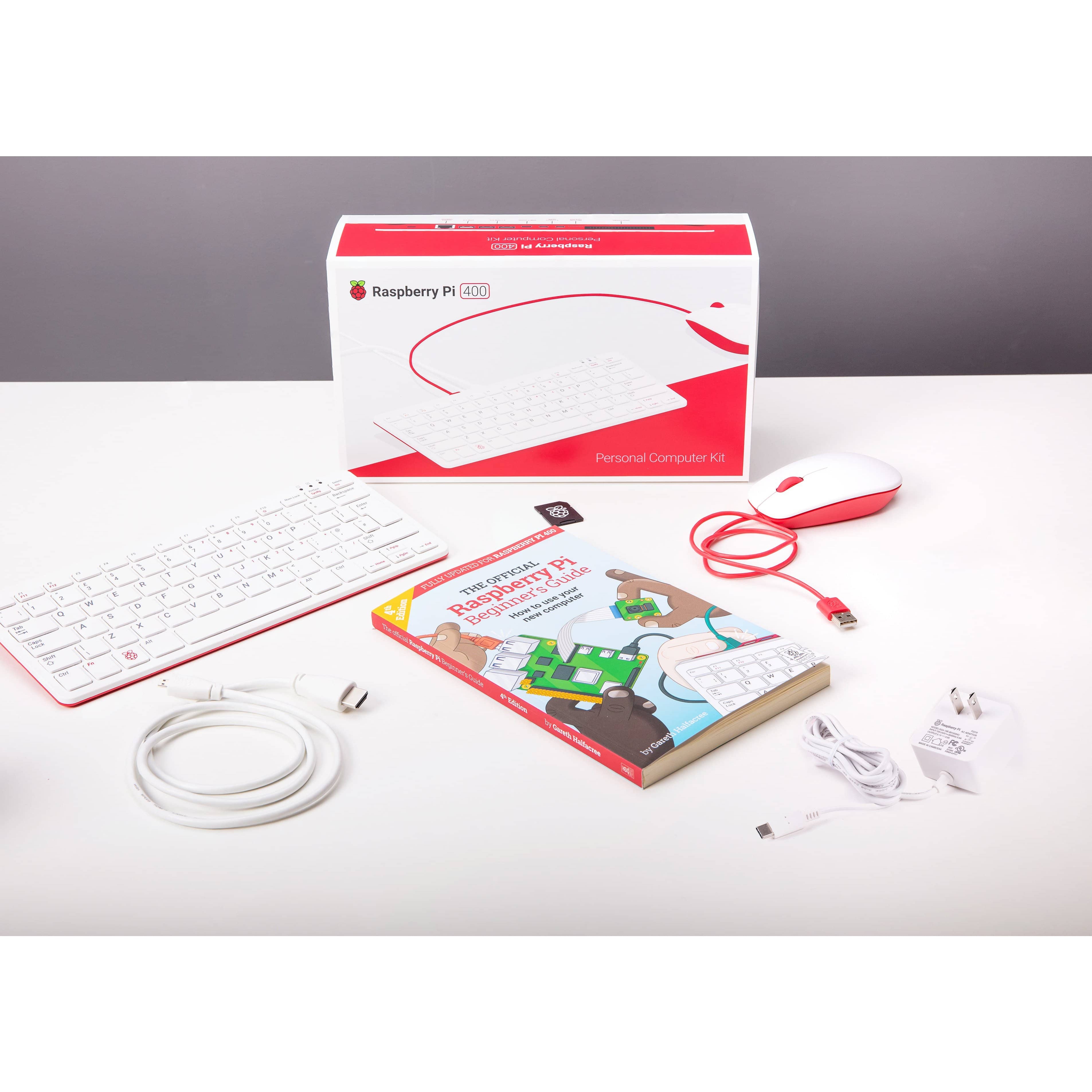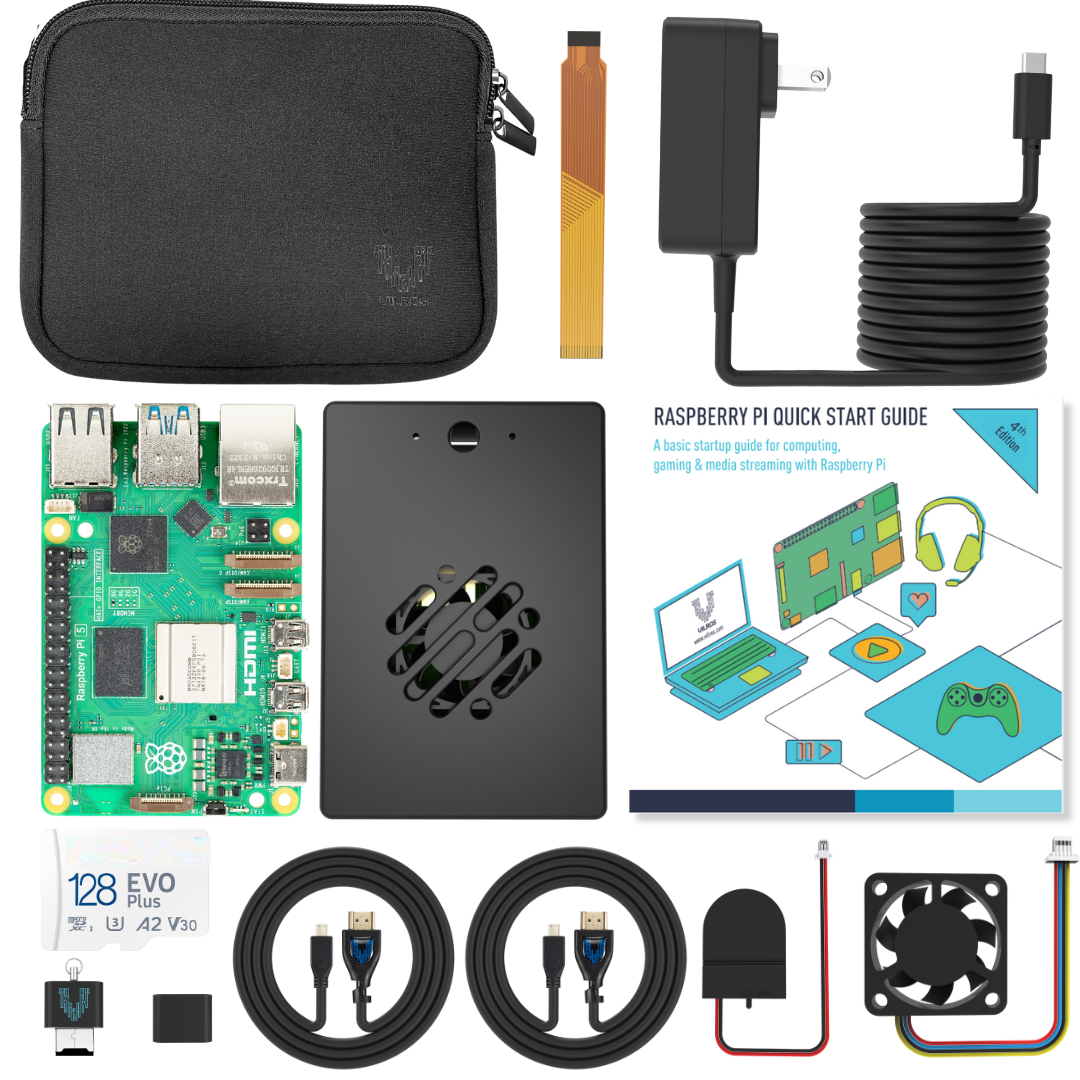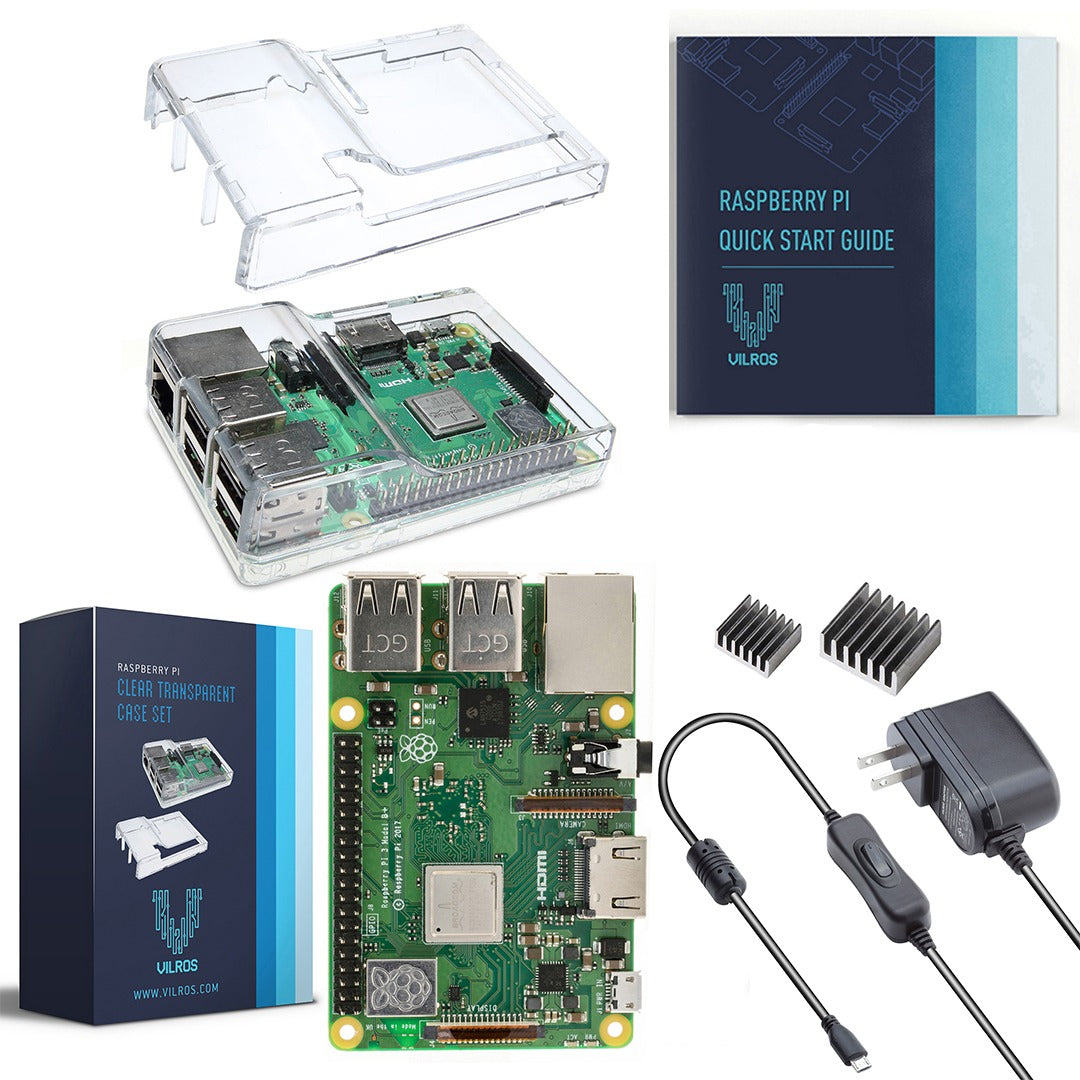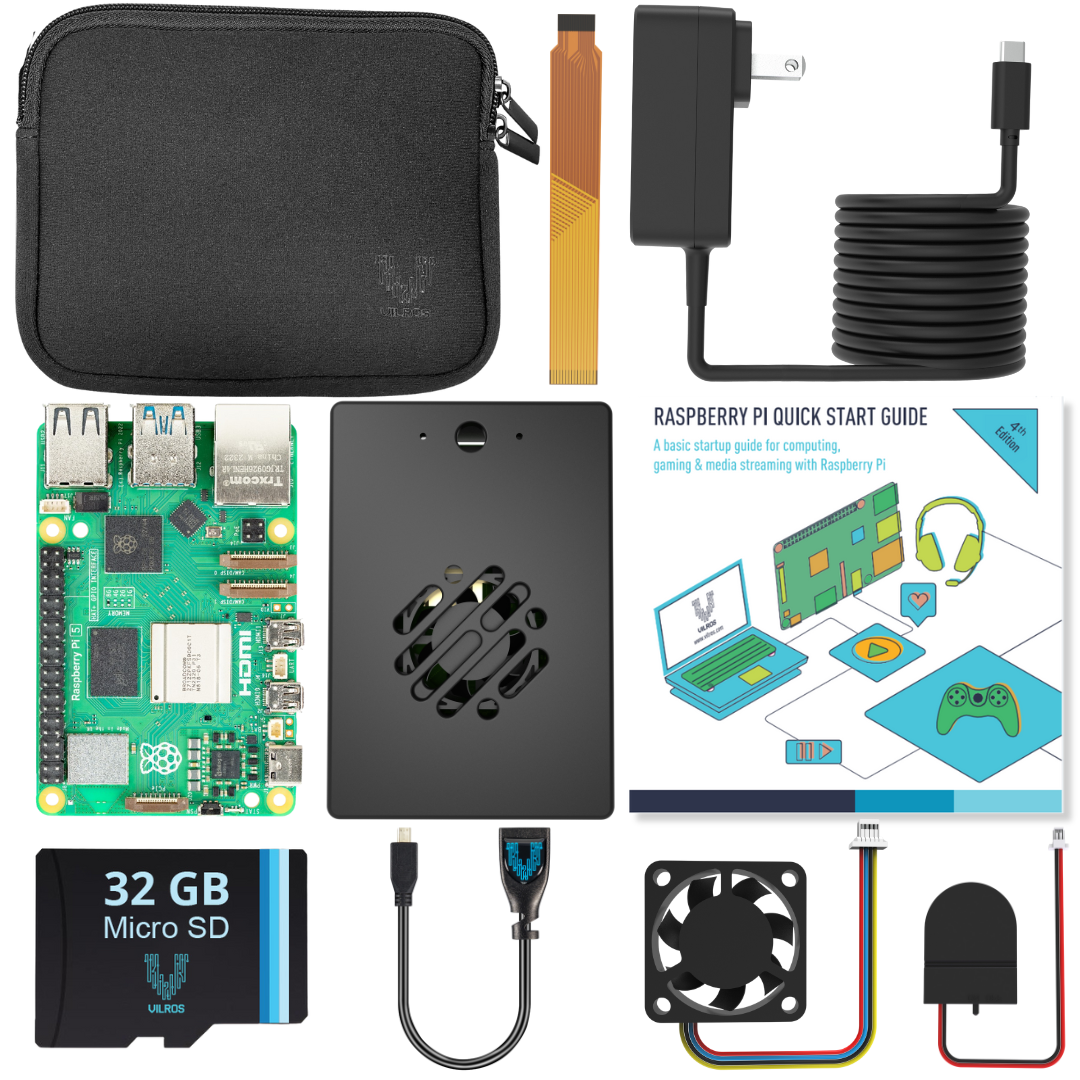2391193026660,
3561800990820,
6624690896990,
3597181091940,
6819486400606,
3933480681566,
3564127912036,
4810905288798,
3929155338334,
6819488333918,
2391193092196,
3564119490660,
3932530671710,
6688235257950,
3239546585188,
3925004157022,
3932560359518,
2391186931812,
4792200200286,
3290672758884,
2391195713636,
3238978289764,
6819487383646,
4092937404510,
4591626813534,
2391193944164,
4381554540638,
2391192895588,
4168227881054,
2391196237924,
2391190732900,
3564140298340,
2391190536292,
6568956330078,
6556144926814,
2391189946468,
2391191093348,
4817664082014,
4635900870750,
3239871053924,
3954769690718,
3238831784036,
4816138010718,
2391192109156,
3564125814884,
4430370930782,
4442337640542,
6819488694366,
6589353164894,
4746339909726,
6692062888030,
6692062953566,
6692063182942,
6692063117406,
6692063215710,
6692063019102,
6692063248478,
6692063150174,
6692063084638,
6692062986334,
6692062920798,
6692063051870,
6554327056478,
6554610729054,
6554611187806,
6605909753950,
6605732315230,
6554318143582,
6554302316638,
6605735985246,
6747569061982,
6554320601182,
6605915095134,
6554624032862,
6554330366046,
6554325188702,
6554312736862,
6747570995294,
6554316210270,
6554304086110,
6554323615838,
6554322010206,
6554305527902,
6773960999006,
4163776151646,
3597181091940,
3933480681566,
3929155338334,
3924192526430,
3932530671710,
2391195058276,
6636577390686,
6625045545054,
3925004157022,
3932560359518,
2391186931812,
4792200200286,
2391195713636,
6841277087838,
2391184867428,
4092937404510,
4591626813534,
2391193944164,
4381554540638,
3924746764382,
4168227881054,
2391196237924,
2391190732900,
2391190536292,
2391189946468,
4456976711774,
4169859989598,
2391190437988,
2391191093348,
4817664082014,
2391184932964,
2391197188196,
4635900870750,
3954769690718,
4816138010718,
6748697722974,
4430370930782,
6826880303198,
6577628250206,
6626128953438,
4442337640542,
6589353164894,
2391185948772,
2391193583716,
4807922253918,
6626132197470,
6826883088478,
4621374128222,
3060911341668,
3596678266980,
6818902245470,
4163776151646,
4463014674526,
2391193026660,
3596674203748,
4746347020382,
3561800990820,
6624690896990,
3597181091940,
6819486400606,
3933480681566,
3564127912036,
4810905288798,
3929155338334,
3924192526430,
6819488333918,
2391193092196,
3564119490660,
3932530671710,
2391195058276,
2391193649252,
6636577390686,
6688235257950,
3588491673700,
3239546585188,
3548406415460,
6625045545054,
3925004157022,
3932560359518,
2391186931812,
4442333479006,
4792200200286,
4746339123294,
3290672758884,
2391195713636,
3238978289764,
6841277087838,
6819487383646,
2391184867428,
6745686409310,
4092937404510,
4591626813534,
2391193944164,
4381554540638,
3924746764382,
2391192895588,
4168227881054,
2391196237924,
2391190732900,
4163776151646,
4746347020382,
3924192526430,
2391195058276,
6636577390686,
3588491673700,
6625045545054,
4792200200286,
6841277087838,
2391184867428,
3924746764382,
4456976711774,
4169859989598,
2391190437988,
4817664082014,
2391184932964,
6748697722974,
6826880303198,
6577628250206,
6626128953438,
2391193583716,
6626132197470,
4621374128222,
3060911341668,
6651881848926,
6689787904094,
6684608757854,
6556130738270,
6780557459550,
4817025237086,
4441919783006,
2391194632292,
6592337576030,
6670101971038,
4621560643678,
4792316035166,
2391185457252,
4792269799518,
6692572921950,
4825799229534,
2391193747556,
2391196074084,
4514752430174,
4621509918814,
6861623361630,
2391193878628,
4792348934238,
2391194959972,
2391183884388,
4799040585822,
3596678266980,
6818902245470,
4163776151646,
4463014674526,
2391193026660,
3596674203748,
4746347020382,
3561800990820,
6624690896990,
3597181091940,
6819486400606,
3933480681566,
3564127912036,
4810905288798,
3929155338334,
3924192526430,
6819488333918,
3564119490660,
2391195058276,
2391193649252,
6636577390686,
6688235257950,
3548406415460,
6625045545054,
3925004157022,
3932560359518,
2391186931812,
4442333479006,
4792200200286,
4746339123294,
3290672758884,
2391195713636,
3238978289764,
6841277087838,
6819487383646,
2391184867428,
6745686409310,
4092937404510,
2391193944164,
4381554540638,
3924746764382,
2391192895588,
4168227881054,
2391196237924,
2391190732900,
3564140298340,
2391190536292,
6568956330078,
6556144926814,
2391189946468,
4734942969950,
4734912528478,
6570751819870,
6570747363422,
6570738843742,
6570749493342,
6570748674142,
6570750345310,
6744267456606,
6744267292766,
6697181675614,
6744267522142,
6636384026718,
6636415713374,
6646782623838,
6636680216670,
6636679790686,
6636665700446,
6640684007518,
6640660217950,
2391184474212,
4365103661150,
2391184310372,
2391187914852,
2391185195108,
2391186767972,
2391185588324,
2391185293412,
2391186473060,
2391186636900,
2391186341988,
6554257981534,
4527989882974,
2391188537444,
2391186014308,
2391187030116,
6801662083166,
2391187619940,
4828709584990,
2391188439140,
2391188176996,
4823863754846,
6554261651550,
4396853788766,
2391187521636,
2391187816548,
3496608858212,
2391188078692,
6736972972126,
4823854088286,
4760794497118,
2391196663908,
6801661165662,
6736950886494,
6714712653918,
6717593780318,
2391185588324,
4525835583582,
6801662083166,
6625054294110,
4823870013534,
4525816905822,
4823879680094,
4591882371166,
4823854088286,
4823887151198,
6801661165662,
2391184867428,
2391184932964,
2391185457252,
2391191289956,
4823863754846,
2391185096804,
2391184867428,
2391184932964,
2391184474212,
4365103661150,
2391184310372,
2391187914852,
2391185195108,
2391185457252,
2391186767972,
2391185588324,
2391185293412,
2391186473060,
2391186636900,
2391186341988,
4527989882974,
2391188537444,
2391186014308,
2391191289956,
2391187030116,
4525835583582,
6801662083166,
2391187619940,
6625054294110,
2391188439140,
2391188176996,
4823870013534,
4525816905822,
4823863754846,
6554261651550,
4823879680094,
4396853788766,
2391185096804,
2391187521636,
6551143252062,
2391188013156,
4591882371166,
2391187816548,
3496608858212,
2391188078692,
6736972972126,
4823854088286,
4823887151198,
4760794497118,
6647265820766,
2391196663908,
6801661165662,
6736950886494,
6714712653918,
6717593780318,
2391184867428,
2391185457252,
4424026947678,
2391196434532,
4428749570142,
2391185588324,
4514752430174,
2391187357796,
2391187718244,
4527989882974,
2391183884388,
4720582033502,
4525835583582,
6801662083166,
3123431637092,
4720543334494,
4525816905822,
4591882371166,
2391189356644,
2391189160036,
2391189028964,
6801661165662,
6648499011678,
2391186997348,
6871927652446,
3032571609188,
6808411570270,
6839631904862,
6608721543262,
6608727605342,
6608711385182,
7020449202270,
6608928047198,
6608723181662,
7016882503774,
6608728916062,
6733616578654,
6672205217886,
6608718626910,
6608924541022,
7020441174110,
6738408472670,
7020479774814,
7020469387358,
3498561962084,
2391189356644,
2391189160036,
3498551541860,
2391189028964,
6731042914398,
2391195058276,
3588491673700,
2391184867428,
4720582033502,
6608040099934,
4825325469790,
4381426516062,
6540581535838,
4514752430174,
6597076418654,
4455989411934,
3588491673700,
6544399794270,
4807874773086,
4425961537630,
3552324681828,
4429507100766,
3925938339934,
6572702564446,
4333561741406,
4456219312222,
4698719223902,
4442335936606,
3491287466084,
6608723181662,
4808814592094,
4799040585822,
4792348934238,
6582787473502,
6539652431966,
4807922253918,
6871933714526,
6539647811678,
6538838966366,
4455983186014,
4800165707870,
4792316035166,
6871933550686,
2391196991588,
4792302174302,
6608721543262,
4442337640542,
4792200200286,
6539718852702,
6871932698718,
4097614217310,
3513152602212,
4807049052254,
4635863253086,
2391188930660,
6623376506974,
4635900870750,
4429494845534,
4635904573534,
4163776151646,
6636577390686,
2391195713636,
2391184867428,
2391184932964,
4753723359326,
4365103661150,
6716243378270,
6573637468254,
6694009241694,
4787680903262,
4827510046814,
6539647811678,
4808814592094,
4799102681182,
6606807105630,
4807874773086,
6551143252062,
6603425316958,
6660465360990,
6709654323294,
6809006735454,
6632731017310,
6605978042462,
6606229340254,
6750902681694,
6752257310814,
6556461891678,
6752256426078,
6752256950366,
6752255901790,
6556460974174,
6871932305502,
6752258097246,
6752253771870,
6752257507422,
6556459401310,
6808412291166,
6808412422238,
6808412618846,
4441919783006,
4424026947678,
4428749570142,
3548406415460,
3596674203748,
3596678266980,
3924192526430,
3924746764382,
3564119490660,
3597181091940,
3561800990820,
3925004157022,
3564125814884,
2391184310372,
2391185195108,
2391185424484,
2391185948772,
2391186014308,
2391186341988,
2391186473060,
2391186636900,
2391186767972,
2391187030116,
2391187521636,
2391187914852,
2391188013156,
2391188176996,
2391188439140,
2391188537444,
2391189946468,
2391190732900,
2391191879780,
2391192109156,
2391192207460,
2391192895588,
2391194402916,
2391195713636,
2391196172388,
2391196237924,
2391196401764,
2391196434532,
2391196991588,
2391197188196,
2391197286500,
3238978289764,
3239546585188,
3496579596388,
3496608858212,
3496623112292,
3496703197284,
3496808120420,
3496912814180,
3496966226020,
4448448053342,
4097614217310,
6871932698718,
2391185096804,
4787680903262,
4430370930782,
4787711901790,
4807049052254,
6597076418654,
4333561741406,
2391185457252,
4827691221086,
4828034302046,
4792348934238,
6592337576030,
6644678295646,
4455983186014,
6694009241694,
6694352683102,
6608607641694,
4163778183262,
4168223883358,
4817664082014,
6556130738270,
6689787904094,
6692572921950,
6560942162014,
6560947830878,
6560949633118,
6716243378270,
3179216437348,
4410420756574,
6573637468254,
3032571609188,
6861623361630,
6809006735454,
6573637468254,
6694009241694,
2391195713636,
4807049052254,
6606807105630,
4753723359326,
6660465360990,
3403215536228,
4745192374366,
3403275436132,
3403284807780,
3403252695140,
4745214034014,
4745146466398,
3934549540958,
3403308630116,
4745217540190,
4591626813534,
4593167007838,
2391189553252,
6696414249054,
6608040099934,
6809006735454,
6540581535838,
6694009241694,
6917584978014,
6597076418654,
6841277087838,
2391194959972,
4425961537630,
2391189160036,
6608031252574,
6808412651614,
4333561741406,
4456219312222,
6808410882142,
3596678266980,
4169859989598,
4799040585822,
4340363690078,
6592337576030,
4808814592094,
4792348934238,
6556130738270,
2391197188196,
6861623361630,
4792316035166,
4097601896542,
6806478192734,
4792302174302,
3060911341668,
4097599799390,
4792200200286,
6716243378270,
4591882371166,
6660465360990,
4807049052254,
6573637468254,
6623376506974,
4792269799518,
4635904573534,
6808412225630,
4448448053342,
6808411209822,
2391193026660,
6622900682846,
2391195713636,
6808412618846,
6808411897950,
6808411603038,
3060911341668,
4753723359326,
4456219312222,
4424026947678,
4428749570142,
4455983186014,
4787711901790,
4808814592094,
4799102681182,
6551143252062,
3505959829604,
4529836261470,
6808412356702,
3943111098462,
6645300822110,
6738372755550,
6608718626910,
6894995472478,
4813347422302,
6608928047198,
4162393407582,
4813321240670,
4813329268830,
2391197286500,
2391195713636,
2391196237924,
2391197188196,
2391194402916,
2391196172388,
2391196401764,
2391196434532,
6597076418654,
6538838966366,
6692062888030,
6606807105630,
6570061234270,
6871932043358,
6871929421918,
6692062953566,
6692063182942,
6692063117406,
6632734195806,
6692063019102,
6692063215710,
6692063150174,
6692063084638,
6692062920798,
6692062986334,
6871932305502,
6871927652446,
6632732688478,
6554323615838,
6871930437726,
2391195713636,
2391196237924,
2391189946468,
2391197188196,
4430370930782,
2391194402916,
2391196172388,
2391196401764,
2391196434532,
6572702564446,
6538838966366,
6570061234270,
6606807105630,
6871932043358,
6871929421918,
6632734195806,
6632731017310,
6871932305502,
6871927652446,
6632732688478,
6871930437726,
6632738095198,
3597181091940,
2391195713636,
2391196237924,
4456976711774,
2391197188196,
4430370930782,
2391193583716,
3060911341668,
2391194402916,
2391196172388,
4441919783006,
4163778183262,
6592337576030,
2391196401764,
4168223883358,
2391196434532,
6572702564446,
6597076418654,
2391193878628,
4455983186014,
3179216437348,
6582787473502,
6539707908190,
2391196860516,
2391189553252,
2391191388260,
6736663773278,
6538838966366,
6692062888030,
4466563776606,
6606807105630,
6570061234270,
4525927137374,
6871932043358,
6871929421918,
3513148899428,
6665469231198,
4381426516062,
3491287466084,
6544399794270,
4396870238302,
6626424062046,
6701816053854,
6583229612126,
2391197057124,
6692062953566,
6692063182942,
6692063117406,
6570074472542,
6632731017310,
3564125814884,
4828688121950,
2391187357796,
6577684775006,
4720582033502,
4720543334494,
4823863754846,
4466563776606,
4340363690078,
6568580612190,
2391186997348,
6769716363358,
2391186931812,
3060911341668,
6845870964830,
4781270368350,
2391193747556,
4514752430174,
2391193878628,
2391183786084,
2391196860516,
2391194468452,
3513148899428,
3178609770596,
2391195975780,
3478571319396,
2391197057124,
2391191355492,
3561031303268,
2391184867428,
2391187914852,
2391185195108,
2391186341988,
2391183786084,
2391187816548,
2391197057124,
3464429469796,
4365103661150,
4827510046814,
4818201804894,
4816983490654,
6541268516958,
4817051025502,
6541275299934,
6551132766302,
4818329043038,
4818290966622,
4808897101918,
6539945574494,
3443682574436,
3032385126500,
2391197286500,
2391189160036,
2391189028964,
2391189356644,
3032571609188,
3498551541860,
3498561962084,
3505971232868,
3505975525476,
3464429469796,
4720582033502,
4823282810974,
4823285694558,
4827691221086,
4828034302046,
4823282810974,
3443682574436,
4823285694558,
3505971232868,
6606004650078,
6554261651550,
4818329043038,
3505975525476,
3032385126500,
6563500261470,
6737208311902,
6632743338078,
4818326159454,
6606229340254,
6606012973150,
3505959829604,
6736861626462,
6736677175390,
6736674259038,
6632742191198,
6606008680542,
4533844836446,
6736675307614,
6736673243230,
6736671801438,
6606227144798,
6606010810462,
6605984890974,
6606230585438,
6736957472862,
6736670752862,
6632744550494,
6606015561822,
6577940856926,
6577684775006,
6577628250206,
4817025237086,
2391195058276,
2391193026660,
2391190437988,
3596678266980,
6818902245470,
4163776151646,
4463014674526,
2391193026660,
3596674203748,
4746347020382,
3561800990820,
6624690896990,
3597181091940,
6819486400606,
3933480681566,
3564127912036,
4810905288798,
3929155338334,
3924192526430,
6819488333918,
2391193092196,
3564119490660,
3932530671710,
2391195058276,
2391193649252,
6636577390686,
6688235257950,
3588491673700,
3239546585188,
3548406415460,
6625045545054,
3925004157022,
3932560359518,
2391186931812,
4442333479006,
4792200200286,
4746339123294,
3290672758884,
2391195713636,
3238978289764,
6841277087838,
6819487383646,
2391184867428,
6745686409310,
4092937404510,
4591626813534,
2391193944164,
4381554540638,
3924746764382,
2391192895588,
4168227881054,
2391196237924,
2391190732900,
2391193649252,
2391188766820,
3238831784036,
2391191715940,
2391191748708,
2391193026660,
3290672758884,
2391193092196,
2391192764516,
2391190241380,
3239834845284,
2391192895588,
2391192109156,
2391191879780,
3239546585188,
3238978289764,
2391192436836,
3239871053924,
2391192207460,
3403215536228,
3403252695140,
3403275436132,
3403284807780,
3403308630116,
3403398185060,
3427620683876,
3533534199908,
3548406415460,
3552298991716,
3552324681828,
3561800990820,
3564119490660,
3564125814884,
3564127912036,
3564140298340,
3588491673700,
3596678266980,
4442333479006,
4442335936606,
4442337640542,
4442348060766,
4720582033502,
4741615648862,
4163776151646,
3597181091940,
3933480681566,
3929155338334,
3924192526430,
3932530671710,
2391195058276,
6636577390686,
6625045545054,
3925004157022,
3932560359518,
2391186931812,
4792200200286,
2391195713636,
6841277087838,
2391184867428,
4092937404510,
4591626813534,
2391193944164,
4381554540638,
3924746764382,
4168227881054,
2391196237924,
2391190732900,
2391190536292,
2391189946468,
4456976711774,
4169859989598,
2391190437988,
2391191093348,
4817664082014,
2391184932964,
2391197188196,
4635900870750,
3954769690718,
4816138010718,
6748697722974,
4430370930782,
6826880303198,
6577628250206,
6626128953438,
4442337640542,
6589353164894,
2391185948772,
2391193583716,
4807922253918,
6626132197470,
6826883088478,
4621374128222,
3060911341668,
6818902245470,
6841277087838,
6826880303198,
6841277087838,
6826880303198,
6823915094110,
6737327456350,
6608040099934,
4807874773086,
4746347020382,
4456219312222,
3933480681566,
3932634054750,
3932560359518,
3929155338334,
2391197188196,
2391194959972,
2391193747556,
2391193878628,
2391190437988,
2391184867428,
6568956330078,
3239871053924,
2391192207460,
4813554679902,
6622421352542,
3941601607774,
4396079448158,
4813321240670,
6608928047198,
6622900682846,
6667083251806,
6554610729054,
6736663773278,
4396804145246,
4665873989726,
6665469231198,
4396870238302,
3496641790052,
6671074492510,
6568580612190,
3496703197284,
6632702574686,
6632723906654,
6605735985246,
6632719646814,
6632708931678,
4825217237086,
6554325188702,
3496623112292,
6992604528734,
6568596144222,
6554316210270,
6554304086110,
6554305527902,
4698719223902,
6826901471326,
6736976543838,
6696419590238,
6636696338526,
6624690896990,
6625045545054,
6626128953438,
6626132197470,
6733616578654,
6808411340894,
6688235257950,
6688232767582,
6689787904094,
6688237027422,
6692572921950,
4381554540638,
4162393407582,
4396055101534,
4381460267102,
4396826853470,
4381541367902,
4396036194398,
6671044870238,
6539707908190,
6539716427870,
4396079448158,
4396861096030,
4396879151198,
4396013289566,
4396063490142,
4396018860126,
6568592736350,
6736663773278,
6671062368350,
6539697094750,
4396804145246,
6701810843742,
6671041888350,
6539718852702,
6894177517662,
6671014920286,
6539720851550,
6701806780510,
4396853788766,
4396817809502,
4665873989726,
6665469231198,
4381426516062,
6539695784030,
6544399794270,
6539709644894,
4396870238302,
6626424062046,
6757302927454,
6701816053854,
6671074492510,
4396010176606,
6736972972126,
6736565469278,
6568580612190,
4396844482654,
6757299159134,
6539714297950,
6799589081182,
6568591032414,
6818902245470,
4163776151646,
4746347020382,
3924192526430,
6636577390686,
3588491673700,
6841277087838,
4456976711774,
6826880303198,
6577628250206,
6651881848926,
6608040099934,
6684608757854,
4441919783006,
4621560643678,
4825325469790,
6694009241694,
2391193747556,
6597076418654,
4514752430174,
6776951930974,
2391193878628,
2391194959972,
2836201734244,
4455989411934,
6540581535838,
2391196860516,
2391194468452,
2391189553252,
6737327456350,
6784956203102,
4381426516062,
2391195975780,
6672205217886,
4624467329118,
6750757191774,
3478571319396,
6769716363358,
6809006735454,
3496579596388,
6632731017310,
3498551541860,
6692844830814,
4813339754590,
2391191355492,
6649846071390,
6625057538142,
6917584978014,
6903963975774,
2391184539748,
6554622820446,
4825217237086,
3596678266980,
4163776151646,
4463014674526,
2391193026660,
3596674203748,
4746347020382,
3561800990820,
6624690896990,
3597181091940,
3933480681566,
3564127912036,
4810905288798,
3929155338334,
3924192526430,
6819488333918,
2391193092196,
3564119490660,
3932530671710,
2391195058276,
2391193649252,
6636577390686,
6688235257950,
3588491673700,
3239546585188,
3548406415460,
6625045545054,
3925004157022,
3932560359518,
2391186931812,
4442333479006,
4792200200286,
4746339123294,
3290672758884,
2391195713636,
3238978289764,
6841277087838,
6819487383646,
4092937404510,
2391193944164,
4381554540638,
3924746764382,
2391192895588,
4168227881054,
2391196237924,
2391190732900,
3564140298340,
2391190536292,
6568956330078,
6556144926814,
2391189946468,
2391193649252,
2391188766820,
3238831784036,
6748697722974,
2391185948772,
2391193583716,
4333561741406,
2391192764516,
3122673844324,
2391194632292,
6670101971038,
2391193747556,
2391196074084,
2391193878628,
4817016225886,
3552298991716,
3552324681828,
2391194959972,
3931026522206,
3179216437348,
2391188668516,
2391183884388,
2391195353188,
3219830669412,
2391183786084,
2391196860516,
2391186407524,
3513152602212,
2391194468452,
6608928047198,
2391189553252,
2391191388260,
3123431637092,
2391195287652,
3032524882020,
2391196139620,
3513148899428,
4340363690078,
4813333495902,
6605909753950,
3478571319396,
2391197057124,
6570074472542,
2391196565604,
3032409309284,
2391191355492,
6994614386782,
3561031303268,
2391186997348,
2391184539748,
3924192526430,
3932530671710,
3932560359518,
4092937404510,
4381554540638,
4168227881054,
4456976711774,
4169859989598,
3954769690718,
4746339909726,
6716243378270,
4163778183262,
4429494845534,
4456219312222,
4792269799518,
4512754335838,
4168223883358,
4428749570142,
4807049052254,
6608721543262,
6608727605342,
6608607641694,
4787711901790,
6608711385182,
4813344538718,
4792302174302,
4789054505054,
6608723181662,
6784956203102,
6780558639198,
6780558114910,
4698719223902,
7064081301598,
6814942363742,
6808831295582,
6808412684382,
6808411635806,
6808411471966,
6808411439198,
3561800990820,
4635900870750,
4741615648862,
4635904573534,
4827460141150,
4746347020382,
3561800990820,
3597181091940,
3933480681566,
3564127912036,
3925004157022,
4792200200286,
4746339123294,
4807922253918,
4792316035166,
4792269799518,
4787679461470,
4787680903262,
4792348934238,
4807049052254,
4787711901790,
4799040585822,
4792302174302,
6737327456350,
4787663470686,
3954785910878,
6818902245470,
6819488333918,
6826883678302,
6823962280030,
6819487383646,
6819488694366,
6819486400606,
6823958544478,
6826901471326,
6826883088478,
6826880303198,
6825729949790,
6825727950942,
6823943471198,
6823915094110,
6839067967582,
6839618306142,
6839631904862,
6839643373662,
3597181091940,
6841277087838,
6843993620574,
6876194144350,
6891295539294,
6894177517662,
6894365802590,
6894995472478,
6902455468126,
6917482512478,
6985284583518,
7016882503774,
7020441174110,
6818902245470,
6819486400606,
6819487383646,
6819488333918,
6826883678302,
6819488694366,
6823962280030,
6823958544478,
6826901471326,
6826883088478,
6825729949790,
6825727950942,
6823943471198,
6823915094110,
6826880303198,
6839067967582,
6839618306142,
6839631904862,
6839643373662,
3597181091940,
6841277087838,
6843993620574,
6876194144350,
6891295539294,
6894177517662,
6894365802590,
6894995472478,
6902455468126,
6917482512478,
6985284583518,
7016882503774,
7020441174110,
6826883088478,
6825729949790,
6839631904862,
6825727950942,
6839618306142,
6876194144350,
6894365802590,
6917482512478,
6839643373662,
4635900870750,
2391194402916,
2391195713636,
4396055101534,
2391186997348,
2391187521636,
2391188078692,
2391191388260,
2391192207460,
2391192436836,
2391196401764,
2391197188196,
2391197286500,
3239871053924,
3403398185060,
3491287466084,
3496608858212,
3496623112292,
3496808120420,
3552298991716,
3552324681828,
3931030388830,
3934718427230,
3941601607774,
3941627887710,
3943111098462,
4162393407582,
4169859989598,
4396036194398,
4442333479006,
4466563776606,
2391184310372,
2391184474212,
2391185195108,
2391185424484,
2391185948772,
2391186341988,
2391186473060,
2391186636900,
2391186767972,
2391186931812,
2391187030116,
2391187718244,
2391187914852,
2391187947620,
2391188013156,
2391188176996,
2391188439140,
2391188570212,
2391188668516,
4442333479006,
6745686409310,
2391192895588,
2391192109156,
4442337640542,
6796993298526,
4442335936606,
6780557459550,
4635863253086,
6823958544478,
4617929195614,
6628550377566,
4336438706270,
6756067672158,
2391188930660,
4635812888670,
3219830669412,
4720582033502,
4396013289566,
3032524882020,
3496808120420,
4813549797470,
6662702202974,
3178609770596,
6815054594142,
4813544128606,
6902457335902,
4813534953566,
4813524336734,
6648495734878,
4813529743454,
4813539573854,
6650288767070,
4813552877662,
4813339754590,
6662702563422,
6608678256734,
6815048007774,
6650478526558,
6648492752990,
6648490852446,
3561031303268,
6650476986462,
6648488067166,
6638291091550,
2391195713636,
2391196237924,
2391197188196,
4430370930782,
2391194402916,
2391196172388,
2391196401764,
2391196434532,
6572702564446,
6538838966366,
6606807105630,
6871932043358,
6871929421918,
6871932305502,
6871927652446,
6871930437726,
3239546585188,
2391189946468,
4430370930782,
6651881848926,
4800165707870,
4448448053342,
2391196991588,
4097614217310,
4787679461470,
4514752430174,
4455983186014,
2391194468452,
6784828244062,
3478571319396,
6871933714526,
6871932698718,
3032409309284,
2391184539748,
6871933550686,
6808412553310,
6808412258398,
6808412225630,
6808412192862,
6808412160094,
6808412094558,
6808412061790,
6808412029022,
3561800990820,
6819486400606,
3933480681566,
4092937404510,
2391193944164,
4635900870750,
6624702038110,
4741615648862,
2391194632292,
6891295539294,
4621560643678,
6623376506974,
4621509918814,
6861623361630,
4817016225886,
3403398185060,
2391183884388,
3513152602212,
6622900682846,
6679659544670,
6679660494942,
4635904573534,
4529828331614,
6773938683998,
6606008680542,
4827460141150,
3954785910878,
6868473970782,
6839067967582,
6808831295582,
6808411996254,
6808411930718,
6775673847902,
6722848587870,
6610824691806,
4163776151646,
4746347020382,
3924192526430,
2391195058276,
6636577390686,
3588491673700,
6625045545054,
4792200200286,
6841277087838,
2391184867428,
4456976711774,
2391190437988,
4817664082014,
2391184932964,
6748697722974,
6826880303198,
6577628250206,
6626128953438,
2391193583716,
4807922253918,
6626132197470,
3060911341668,
6651881848926,
6689787904094,
6684608757854,
6796993298526,
4365103661150,
4827691221086,
6556130738270,
4817025237086,
4441919783006,
6592337576030,
6665066905694,
6670101971038,
2391185457252,
2391185424484,
6575429976158,
6692572921950,
4825799229534,
2391193747556,
4828034302046,
6861623361630,
2391193878628,
2391194959972,
2391187357796,
4827510046814,
2391183884388,
6560947830878,
3219830669412,
2391183786084,
3596678266980,
3596674203748,
3548406415460,
2391193649252,
2391188766820,
3238831784036,
3533534199908,
2391191748708,
2391191715940,
3290672758884,
2391193026660,
2391193092196,
4463014674526,
4746339123294,
4746347020382,
4810905288798,
6556144926814,
6624690896990,
6688232767582,
6688235257950,
6688237027422,
6737327456350,
6799587147870,
6808410816606,
6808410849374,
6808410882142,
6808410947678,
6808411013214,
6808411045982,
6808411078750,
6808411111518,
6808411177054,
6808411209822,
6808411308126,
6808411340894,
6818902245470,
4429507100766,
4333561741406,
6608040099934,
4429494845534,
4456219312222,
4381460267102,
4396826853470,
3552298991716,
3552324681828,
2391188930660,
4381541367902,
6540581535838,
6539707908190,
4813348438110,
4813352239198,
4396079448158,
4396861096030,
4396879151198,
6554327056478,
6554610729054,
4396018860126,
6554611187806,
4396853788766,
4381426516062,
6544399794270,
6568580612190,
3496703197284,
6539714297950,
6554318143582,
6554302316638,
6568589328478,
6568586084446,
4798000726110,
6554320601182,
6539711217758,
4813350305886,
6605915095134,
6554330366046,
6554316210270,
3498333700196,
6554323615838,
6554322010206,
3932634054750,
2391196860516,
2391194468452,
2391193747556,
2391186407524,
2391183884388,
3032524882020,
3032409309284,
2391197057124,
2391196565604,
2391196074084,
2391195975780,
2391195353188,
2391195287652,
2391195058276,
2391194959972,
2391194632292,
2391193878628,
2391193583716,
2391191355492,
2391190437988,
2391189553252,
2391184539748,
2391183786084,
3060911341668,
3478571319396,
3513148899428,
3588491673700,
3924192526430,
2391196139620,
3924746764382,
3219830669412,
3932634054750,
4340363690078,
4169859989598,
4441919783006,
4163776151646,
4456976711774,
4514752430174,
4621560643678,
4621509918814,
4621374128222,
4746347020382,
4792200200286,
4792269799518,
4792302174302,
4792316035166,
4792348934238,
4799040585822,
4817025237086,
4817664082014,
3596678266980,
4163776151646,
4463014674526,
2391193026660,
3596674203748,
4746347020382,
3561800990820,
6624690896990,
3597181091940,
3933480681566,
3564127912036,
4810905288798,
3929155338334,
3924192526430,
6819488333918,
2391193092196,
3564119490660,
3932530671710,
2391195058276,
2391193649252,
6636577390686,
6688235257950,
3588491673700,
3239546585188,
3548406415460,
6625045545054,
3925004157022,
3932560359518,
2391186931812,
4442333479006,
4792200200286,
4746339123294,
3290672758884,
2391195713636,
3238978289764,
6841277087838,
6819487383646,
4092937404510,
2391193944164,
4381554540638,
3924746764382,
2391192895588,
4168227881054,
2391196237924,
2391190732900,
3564140298340,
2391190536292,
6568956330078,
6556144926814,
2391189946468,
4734942969950,
4734912528478,
6570751819870,
6570747363422,
4734951522398,
6570738843742,
4734961713246,
6570749493342,
6570748674142,
6570750345310,
6744267456606,
6744267292766,
6697181675614,
6744267522142,
6754050736222,
4810905288798,
6688235257950,
6556144926814,
4817664082014,
4816138010718,
6688232767582,
6689787904094,
2391184474212,
6556130738270,
6626627944542,
6756066361438,
2391187914852,
6592337576030,
6688237027422,
6692572921950,
4828688121950,
4816987619422,
4825799229534,
4816568057950,
4621228081246,
6744383193182,
6560947830878,
6671044870238,
6539707908190,
6539716427870,
4816509927518,
4825782911070,
6671062368350,
6592319651934,
6539697094750,
6701810843742,
6671041888350,
6560949633118,
4816983490654,
6539718852702,
6539720851550,
6671045951582,
6554261651550,
6592298385502,
6560942162014,
6539695784030,
6539709644894,
6701816053854,
6736565469278,
6757299159134,
6539714297950,
6799589081182,
6554318143582,
6671023439966,
6799592128606,
2391193026660,
6624690896990,
2391193092196,
2391195058276,
3239546585188,
6625045545054,
2391186931812,
3290672758884,
2391195713636,
3238978289764,
2391193944164,
2391192895588,
2391196237924,
2391190732900,
2391190536292,
2391189946468,
2391190437988,
2391191093348,
2391197188196,
2391192109156,
2391191879780,
4430370930782,
6626128953438,
2391185948772,
2391190241380,
6624702038110,
2391190995044,
2391194828900,
4333561741406,
2391194402916,
4800165707870,
4410420756574,
2391196172388,
2391184310372,
2391194206308,
4817025237086,
2391187914852,
4560723542110,
4448448053342,
2391185195108,
6845870964830,
2391185424484,
4456219312222,
4396055101534,
2391196991588,
4097614217310,
4781270368350,
2391196401764,
2391196434532,
2391192436836,
6624690896990,
6625045545054,
6626128953438,
6626132197470,
6733616578654,
6808411340894,
2391195713636,
2391196237924,
2391197188196,
3060911341668,
2391194402916,
2391196172388,
6845870964830,
2391196401764,
2391196434532,
2391193878628,
3179216437348,
2391196860516,
4720582033502,
2391189553252,
2391191388260,
4720543334494,
4466563776606,
6871932043358,
6871929421918,
2391197057124,
2391191355492,
6871932305502,
6871927652446,
6871930437726,
6572702564446,
6582787473502,
4456976711774,
4430370930782,
3060911341668,
4163778183262,
4168223883358,
6572702564446,
2391193878628,
6582787473502,
2391196860516,
6692062888030,
6570061234270,
4525927137374,
4381426516062,
3513148899428,
6544399794270,
6583229612126,
6692063117406,
6632734195806,
6692063019102,
6692063215710,
6692063150174,
6692062920798,
6554323615838,
6808412160094,
6808411471966,
6808411439198,
6692063051870,
6632738095198,
3596678266980,
2391193026660,
3933480681566,
3564127912036,
3932530671710,
3932560359518,
2391186931812,
4792200200286,
2391195713636,
6841277087838,
4591626813534,
4169859989598,
2391197188196,
3954769690718,
3060911341668,
4333561741406,
4753723359326,
6608040099934,
4410420756574,
6716243378270,
6556130738270,
6756066361438,
4448448053342,
4163778183262,
6592337576030,
6573637468254,
4792316035166,
4456219312222,
3934715674718,
4792269799518,
6694009241694,
6597076418654,
6623376506974,
6861623361630,
4792348934238,
2391194959972,
4807049052254,
3931026522206,
3179216437348,
4799040585822,
6744383193182,
6540581535838,
4425961537630,
4792302174302,
4808814592094,
6622900682846,
4799102681182,
4787663470686,
6606807105630,
4340363690078,
2391186931812,
4560723542110,
6845870964830,
4781270368350,
6841212436574,
6887802044510,
2391195058276,
3925004157022,
2391186931812,
2391195713636,
2391184867428,
2391193944164,
2391196237924,
2391190732900,
2391190536292,
2391189946468,
2391190437988,
2391191093348,
2391184932964,
2391197188196,
2391185948772,
2391193583716,
3060911341668,
2391190995044,
2391194828900,
2391194402916,
2391184474212,
2391196172388,
2391184310372,
2391194206308,
2391187914852,
3122673844324,
2391194632292,
2391185195108,
6845870964830,
2391185457252,
2391185424484,
2391196991588,
2391187947620,
2391196401764,
2391193747556,
2391196434532,
2391196074084,
2391186767972,
2391185293412,
2391193878628,
2391186473060,
2391186636900,
3552298991716,
2391186341988,
2391194959972,
2391187718244,
3179216437348,
2391188668516,
2391183884388,
2391195353188,
4827510046814,
4818201804894,
4816983490654,
4817051025502,
6541275299934,
6539945574494,
6922916724830,
6947647979614,
3924192526430,
3564119490660,
3932530671710,
3932560359518,
6819487383646,
4092937404510,
4381554540638,
4168227881054,
2391190536292,
4456976711774,
4169859989598,
3954769690718,
4429507100766,
4746339909726,
2391190241380,
6826883088478,
2391192764516,
6716243378270,
3122673844324,
4635863253086,
4163778183262,
6825729949790,
4429494845534,
4456219312222,
4792269799518,
4512754335838,
4168223883358,
6839631904862,
6572702564446,
4428749570142,
2391196074084,
6861623361630,
3552298991716,
3552324681828,
6825727950942,
4807049052254,
3239834845284,
6608721543262,
3931026522206,
6608727605342,
6582787473502,
3179216437348,
2391188668516,
6608607641694,
6634229760094,
4787711901790,
6839618306142,
2391183884388,
6608711385182,
4813554679902,
6573637468254,
6539647811678,
6539652431966,
6551143252062,
4807874773086,
6603425316958,
6750902681694,
6648499011678,
6573637468254,
6539647811678,
4808814592094,
6539652431966,
6551143252062,
4807874773086,
6752257310814,
6750902681694,
6556461891678,
6752256950366,
6752256426078,
6752255901790,
6556460974174,
6752258097246,
6752253771870,
6752257507422,
6556459401310,
3596678266980,
6818902245470,
4163776151646,
4463014674526,
2391193026660,
3596674203748,
4746347020382,
3561800990820,
6624690896990,
3597181091940,
6819486400606,
3933480681566,
3564127912036,
4810905288798,
3929155338334,
3924192526430,
6819488333918,
2391193092196,
3564119490660,
3932530671710,
2391195058276,
2391193649252,
6636577390686,
6688235257950,
3239546585188,
3548406415460,
6625045545054,
3925004157022,
3932560359518,
2391186931812,
4442333479006,
4792200200286,
4746339123294,
3290672758884,
2391195713636,
3238978289764,
6819487383646,
2391184867428,
6745686409310,
4092937404510,
4591626813534,
2391193944164,
4381554540638,
3924746764382,
2391192895588,
4168227881054,
2391196237924,
2391190732900,
3564140298340,
2391190536292,
4163776151646,
3597181091940,
3933480681566,
3929155338334,
3924192526430,
3932530671710,
2391195058276,
6636577390686,
6625045545054,
3925004157022,
3932560359518,
2391186931812,
4792200200286,
2391195713636,
6841277087838,
2391184867428,
4092937404510,
4591626813534,
2391193944164,
3924746764382,
4168227881054,
2391196237924,
2391190732900,
2391190536292,
2391189946468,
4456976711774,
4169859989598,
2391190437988,
2391191093348,
4817664082014,
2391184932964,
2391197188196,
4635900870750,
3954769690718,
4816138010718,
6748697722974,
4430370930782,
6826880303198,
6577628250206,
6626128953438,
4442337640542,
6589353164894,
2391185948772,
2391193583716,
4807922253918,
6626132197470,
6826883088478,
4621374128222,
3060911341668,
2391190995044,
6636384026718,
6636415713374,
6646782623838,
6640684007518,
6640660217950,
6636680216670,
6636679790686,
6636665700446,
4163776151646,
3597181091940,
3933480681566,
3929155338334,
3924192526430,
3932530671710,
2391195058276,
6636577390686,
6625045545054,
3925004157022,
3932560359518,
2391186931812,
4792200200286,
2391195713636,
6841277087838,
2391184867428,
4092937404510,
4591626813534,
2391193944164,
4381554540638,
3924746764382,
4168227881054,
2391196237924,
2391190732900,
2391190536292,
2391189946468,
4456976711774,
4169859989598,
2391190437988,
2391191093348,
4817664082014,
2391184932964,
2391197188196,
4635900870750,
3954769690718,
4816138010718,
6748697722974,
4430370930782,
6826880303198,
6577628250206,
6626128953438,
4442337640542,
6589353164894,
2391185948772,
2391193583716,
4807922253918,
6626132197470,
6826883088478,
4621374128222,
3060911341668,








